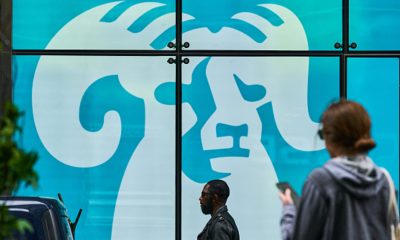News
Scaramucci proposes that CEOs supporting former president are suffering from ‘Trump-nesia’

After former President Trump recently attended a meeting of the Business Roundtable, former White House Communications Director Anthony Scaramucci raised the concept of “Trump-nesia” among CEOs. With over 80 CEOs present at the meeting, including big names like Tim Cook of Apple and Steven Schwarzman of Blackstone, Scaramucci suggested that some corporate leaders may be forgetting about the controversies and challenges that occurred during Trump’s time in office. This commentary came during an interview on MSNBC with Alex Witt, where Scaramucci pointed out the tendency for individuals to overlook past negative experiences when faced with new circumstances or opportunities.
The term “Trump-nesia” reflects the idea that some CEOs may be willing to overlook or forgive Trump’s actions and policies in order to potentially benefit from his continued influence or access to power. Despite the controversies and divisiveness that characterized Trump’s presidency, some business leaders might be tempted to prioritize their self-interest or short-term gains over holding him accountable for past misconduct. Scaramucci’s comments hint at a perceived trend among certain CEOs to downplay or ignore the negative aspects of Trump’s tenure in favor of aligning themselves with his political agenda or personal brand.
The timing of Trump’s attendance at the Business Roundtable meeting raises questions about the significance of his continued presence in the business world and his ability to sway influential leaders in corporate America. As the former president seeks to maintain his political relevance and influence, his interactions with CEOs and other industry figures could potentially shape the priorities and decision-making of key stakeholders in the business community. Scaramucci’s observation about “Trump-nesia” suggests that some CEOs may be willing to overlook past conflicts or disagreements in order to engage with Trump on issues of mutual interest or benefit.
The concept of “Trump-nesia” also highlights broader concerns about ethical leadership and corporate accountability in the business world. As CEOs and other executives navigate complex political and social dynamics, it is essential for them to balance their business interests with considerations of integrity, transparency, and public trust. By acknowledging the potential presence of “Trump-nesia” among corporate leaders, Scaramucci’s comments invite reflection on the ethical implications of aligning with controversial figures or prioritizing personal gain over ethical principles.
In light of Scaramucci’s comments on “Trump-nesia” and the implications for corporate leadership, it is important for CEOs and other business leaders to consider the long-term consequences of their associations and decisions. While short-term gains or political advantages may be tempting, the reputational risks and ethical concerns associated with aligning with divisive or controversial figures like Trump should not be overlooked. By prioritizing integrity, transparency, and ethical leadership, CEOs can demonstrate their commitment to upholding values that benefit their organizations, employees, and stakeholders in the long run.
Overall, the concept of “Trump-nesia” as articulated by Anthony Scaramucci highlights the complex interplay between politics, business, and ethics in the contemporary landscape. As CEOs navigate the challenges of engaging with political figures like Trump, they must carefully consider the ethical implications of their actions and decisions. By upholding principles of integrity, transparency, and public trust, corporate leaders can demonstrate their commitment to responsible leadership and contribute to a more ethical and sustainable future for the business community at large.

-

 Videos6 days ago
Videos6 days agoTop 10 Best Mobile Games of 2024 | Best Android Games 2023 (OFFLINE / ONLINE)
-

 News6 days ago
News6 days agoPoland versus Netherlands – Euro 2024: Live updates on score, team news as Dutch fail to capitalize on opportunities to lead in Hamburg
-

 Investing7 days ago
Investing7 days agoEarly investments in AI have contributed to the outperformance of this global tech fund for a second consecutive year.
-

 News7 days ago
News7 days agoLIVE: Trooping the Colour with King Charles, Queen Camilla, Kate, William, and other royals at Buckingham Palace, concluding with iconic RAF flypast for a memorable day
-

 Finance7 days ago
Finance7 days agoHong Kong Authorities Issue Statement on Cryptocurrency
-

 News6 days ago
News6 days agoPolice use tear gas on protesters across France as hundreds of thousands gather to demonstrate against far-right resurgence after Macron’s election risk.
-

 News6 days ago
News6 days agoFather’s Day weather forecast in the Tri-State Area looks fantastic, but there is a chance of a heat wave approaching.
-

 News5 days ago
News5 days agoLions’ Pride: England stars overjoyed as they reunite with WAGs and families after support from the ladies in 1-0 victory against Serbia













